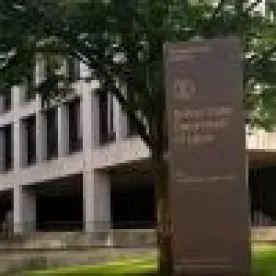On December 22, 2020, the U.S. Department of Labor (DOL) issued its final rule modifying federal regulations concerning compensation for “tipped employees.” The new final rule follows 2018 federal legislation, which amended the Fair Labor Standards Act (FLSA) to, among other things, prohibit employers from keeping their employees’ tips “for any purposes, including allowing managers or supervisors to keep any portion of employees’ tips” even if they do not claim a tip credit.
Background
The FLSA generally requires covered employers to pay their employees at least the federal minimum wage, which is currently $7.25 per hour. An exception applies to tipped employees (employees who customarily and regularly receive more than $30 per month in tips), who generally earn the bulk of their total compensation through tips. The FLSA permits an employer that fulfills certain requirements to credit a portion of the tips received by their tipped employees toward their minimum wage obligation to those employees – the “tip credit.”
Practically speaking, under the FLSA qualified employers can pay tipped employees as little as $2.13 per hour (as of December 2020), provided the employee’s tips meet or exceed the amount of the tip credit, such that they always earn at least the federal minimum wage of $7.25 per hour. If the tipped employee does not earn sufficient tips to effectively meet the federal minimum wage, the employer must pay additional wages to cover the difference. Notably, if the value of the employee’s tips is such that the employee’s hourly compensation exceeds the federal minimum wage, the employer must still pay at least $2.13 per hour to the tipped employee.
The 2018 Amendments to the FLSA
In 2018, Congress enacted a variety of amendments to the FLSA. One of the key amendments prohibited employers from keeping tips received by employees for any purpose, “including allowing managers or supervisors to keep any portion of employees’ tips, regardless of whether or not the employer takes a tip credit.” In response to this amendment, in 2019 the DOL sought to amend various regulations concerning tipped employees, which ultimately resulted in the DOL’s final rule.
What Does The Final Regulation Accomplish?
Under the final rule:
-
An employer may exert control over tips only to:
-
Promptly distribute tips to the covered employee/employees;
-
Require employees to share tips with other eligible employees; or
-
Where the employer facilitates tip pooling by collecting and redistributing employees’ tips, promptly distribute tips to eligible employees in a tip pool.
-
Employers may mandate a nontraditional tip pool that includes tipped employees (such as servers) and nontipped employees (such as cooks), provided that: (1) the pool does not include any employers, managers, or supervisors; and (2) the employer does not pay the tipped employees using a tip credit but instead pays them the full minimum wage without applying any tip credit.
-
Prior to the passage of the 2018 FLSA amendments, DOL regulations prohibited employers from requiring tipped employees to share tips with non-tipped employees.
-
-
Where an employee performs tipped and non-tipped duties, the employer may take a tip credit for non-tipped duties performed, so long as (1) the duties are related to the employee’s tipped occupation (i.e., a waiter cleans the table after a customer leaves); and (2) the related duties must be performed either contemporaneously with the tip-producing activities or within “a reasonable time immediately before or after” the tipped activities.
-
This provision eliminates the widely-used, but never formally codified “80/20” approach, which provided a heavily litigated demarcation line for employers to follow.[1]
-
The final rule does not define “a reasonable time immediately before or after.”
-
-
Employers will be required to (1) identify on their payroll or other records each employee who receives tips; and (2) keep records of the weekly/monthly amount of tips received by each employee..
When does the Final Rule Come into Effect?
The final rule takes effect 60 days after it is published in the Federal Register. As of the date of this writing, the final rule has not been published in the Federal Register.
A Word of Caution for California Employers
California employers should note that the DOL’s finalized tip regulations, like the FLSA in general, often bear limited assistance in maintaining compliance with California state laws and regulations concerning compensation owed to tipped employees.
As an example, California Labor Code Section 351 prohibits an employer from applying a tip credit toward a tipped employee’s compensation – therefore precluding a less-than-minimum wage pay structure for tipped employees. While California law does not prohibit employer-mandated tip pooling (or voluntary tip pooling), the California Division of Labor Standards and Enforcement (DLSE) regulates tip pooling differently than the DOL. Thus, California employers should consult with their counsel prior to taking action in response to the DOL’s final rule.
FOOTNTOES
[1] The 80/20 approach did not permit employers to take a tip credit if a tipped employee spent more than 20 percent of time worked performing non-tipped duties. For such employees, the employer would be required to pay at least their full minimum wage.



 />i
/>i

